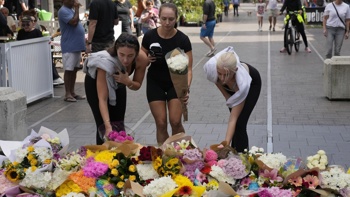A lawyer says the fear that New Zealand is set to be flooded with immigrants as a result of the Government signing a global immigration agreement is "unwarranted".
Foreign Minister Winston Peters has announced the Government's supporting the UN global compact for migration, saying it's on the basis of legal advice that it doesn't affect New Zealand's right to make its own migration laws.
Lawyer and former National Party activist, Liam Hehir told Tim Dower the agreement doesn't mean migrants have an immediate right to move to New Zealand.
"There's nothing in the compact that established unilateral right to move anywhere in the world. There has been some unwarranted fear of that."
"People have a natural suspicion of any sort of international agreement of that nature, especially in regard to the controversy over migrant in the recent years but I think it's an unfair reading to say that's the case."
He said the pact is just a set of objectives and a promise to treat migrants fairly.
"We are signing up to a set of objectives and promises that involve things like cooperation, statistical gathering and certain ways of handling immigration. So it is non-binding in effect but it remains a set of promises."
"There are things that are substantive and things that are aspirational but they are things like we will use detention as a last result rather than a first response and we will issue ID cards to migrants and things of that nature."
When asked why he thought Australia hadn't signed the pact, he said that there are a number of countries who want to set their own rules.
"The problem is when you sign up to a set of commitments, whether they are binding or not, you are promising to do them and so if you're not willing to do everything in the compact you really need to be questioning whether or not you're going to sign up for it."
National Party leader Simon Bridges slammed the agreement saying it treats illegal and legal migrants the same.
Liam Hehir said he thinks that's a fair comment and a valid concern.
"The compact does blur the line between illegal and legal migration. It refers to it as regular and irregular migrant which is a bit of a euphemism, it doesn't really distinguish between them although, within the compact itself, it does acknowledge that States can deal with those things in separate ways."
"It is a valid criticism that has been made by a number of people around the world that there is a blurring of the line."
The guidelines for "educating reporters on terminology" has caused concerned as well and Hehir said it shouldn't be included in the compact.
"It's has a sort of authoritarian ring to it. Now however softly they try to make it sound and however you can downplay it that's not really something I think that States should be promising to do."
"I think it's a serious weakness in the compact and something that shouldn't be in it."
Take your Radio, Podcasts and Music with you









